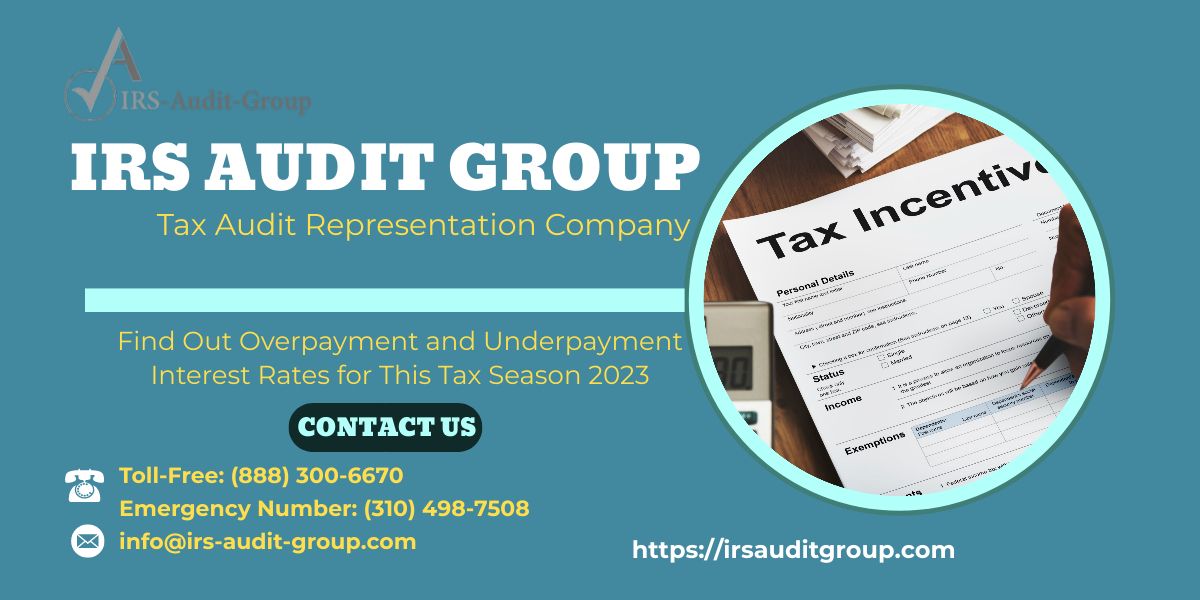Internal Revenue Service announced that the interest rates will remain the same for the calendar quarter beginning April 1, 2023. The rate for overpayment and underpayment for individuals will be 7% annually, compounded daily.
What is Overpayment?
An overpayment occurs when a taxpayer pays more than the amount of tax owed. Taxpayers may overpay due to various reasons such as errors in calculating taxes, administrative errors, delayed terminations, incomplete job records, incorrectly completed work schedules or default hours, duplicate transactions, irregularly processed unpaid leaves of absence, changes in percent time, or errors in time reporting.
The overpayment interest rate for the second quarter of tax season 2023 is 7% for individuals and 6% for corporations. Also, the portion of the amount exceeding $10,000 will get 4.5% for the corporations. This interest rate was the same as in the first quarter of 2023. Previously the interest rate in the fourth quarter of 2022 for overpayments was 6% per year. It increased by 1% for both individuals and corporations in the first quarter of 2023.
What is Underpayment?
Underpayment occurs when a taxpayer doesn’t pay enough taxes during a year, either through withholding or estimated taxes. IRS charges underpayment when taxpayers don’t pay their taxes, penalties, and additions to tax or interest by the deadline. Even if the taxpayer requests an extension, the interest in underpayment still applies.
The current interest rate for underpayment beginning April 2023 is 7% (taxes owed but not fully paid) and 9% for large corporate underpayments. The interest rate has been increased by 1% for underpayments from the first quarter of 2023. Previously the interest rate in the fourth quarter of 2022 for underpayments was 6% per year and 8% for large corporate underpayments.
How to Dispute?
If there is any dispute regarding the overpayment, taxpayers can request a refund from IRS. If a taxpayer believes the IRS assessment is incorrect, he can provide additional documents or evidence to support the claim. The IRS reduces the amount of interest owed by taxpayers only if the interest is applied because of any unreasonable error or delay by an IRS officer. For dispute interest due to unreasonable error or IRS delay, the taxpayer can submit a Claim for Refund and Request for Abatement form or send a signed letter requesting to reduce or adjust the overcharged interest. If the taxpayer feels that IRS has underpaid the interest or credits that they are eligible for, they can request an Informal Conference and Appeals Review. The dispute will be reviewed by the IRS Examination or Collection office that made your tax assessment. If they cannot resolve it, the appeal will be considered for an IRS audit.
Taxpayers can represent themselves on the appeal or hire a tax professional. The tax professional must be eligible as:
- An attorney
- A certified public accountant, or
- An enrolled agent authorized to practice before the IRS.
Interest rates for underpayments and overpayments vary and may change quarterly. The interest rate charged for earlier quarters or years is unaffected by the changes. Therefore taxpayers should make sure to pay taxes on time to avoid interest charges and those who are unable to pay in full should work with IRS to set up a payment plan.
IRS Audit Group can be at your service in representing your case for federal or state tax audit. We are a tax audit representation company in Los Angeles, California. We serve across the country with all the states as IRS is a federal agency and we could request IRS to transfer your case to California. Contact us for a free consultation to understand your case.
https://irsauditgroup.com/contact/
Telephone Number: (310) 498-7508
info@irs-audit-group.com

